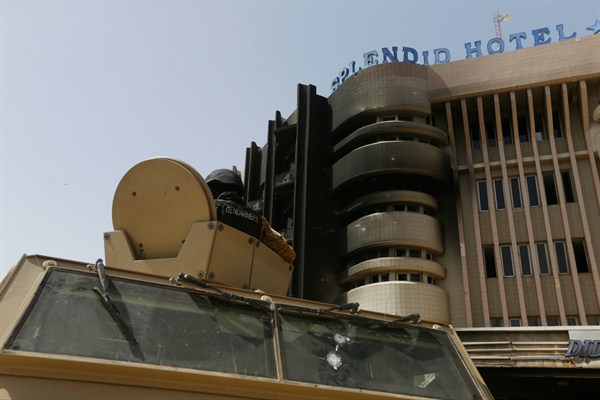Late last year, in the early morning hours of Dec. 16, 40 heavily armed fighters stormed a military post in Nassoumbou, in northern Burkina Faso, about 18 miles from the border with Mali. Many observers assumed the attack was conducted by one of the extremist groups that are active across the Sahel and that find a safe haven in parts of Mali. Burkina Faso had already suffered several attacks at the hands of foreign insurgents, most often in its remote northern provinces, but also when operatives of al-Qaida in the Islamic Maghreb infiltrated Ouagadougou, the capital, in January 2016, killing about 30 people, mostly foreigners.
The Nassoumbou assault, which killed 12 Burkinabe troops, was the deadliest attack since then. The toll was all the more shocking because the victims were not ordinary soldiers, but members of the special Anti-Terrorist Forces Group, who were posted there specifically to combat such incursions. The fact that the militants fled across the border into Mali only reinforced perceptions that it was yet another attack from abroad, with initial speculation about a possible reprisal by a jihadi leader in Mali whose suspected followers had been caught in a Burkinabe military sweep in October. Although a few locals were also detained in that operation, any Burkinabe involvement was still seen as largely peripheral in an Islamist insurgency mainly rooted in Mali and other parts of the Sahel.
But a week later came the startling revelation that the insurgency also had a local face: The attack was officially claimed by Ansarul Islam, a previously unknown group led by Ibrahim Dicko, a radical preacher originally from an area near the town of Djibo in northern Burkina Faso. Dicko first came to the government’s attention in late 2013 when he was detained in Mali by French troops who had intervened that year to prevent a jihadi takeover. He was held by Mali’s intelligence services for two years before being released.

